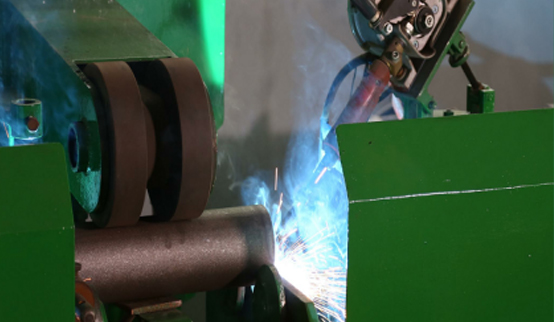 Afrikaans
Afrikaans  Albanian
Albanian  Amharic
Amharic  Arabic
Arabic  Armenian
Armenian  Azerbaijani
Azerbaijani  Basque
Basque  Belarusian
Belarusian  Bengali
Bengali  Bosnian
Bosnian  Bulgarian
Bulgarian  Catalan
Catalan  Cebuano
Cebuano  Corsican
Corsican  Croatian
Croatian  Czech
Czech  Danish
Danish  Dutch
Dutch  English
English  Esperanto
Esperanto  Estonian
Estonian  Finnish
Finnish  French
French  Frisian
Frisian  Galician
Galician  Georgian
Georgian  German
German  Greek
Greek  Gujarati
Gujarati  Haitian Creole
Haitian Creole  hausa
hausa  hawaiian
hawaiian  Hebrew
Hebrew  Hindi
Hindi  Miao
Miao  Hungarian
Hungarian  Icelandic
Icelandic  igbo
igbo  Indonesian
Indonesian  irish
irish  Italian
Italian  Japanese
Japanese  Javanese
Javanese  Kannada
Kannada  kazakh
kazakh  Khmer
Khmer  Rwandese
Rwandese  Korean
Korean  Kurdish
Kurdish  Kyrgyz
Kyrgyz  Lao
Lao  Latin
Latin  Latvian
Latvian  Lithuanian
Lithuanian  Luxembourgish
Luxembourgish  Macedonian
Macedonian  Malgashi
Malgashi  Malay
Malay  Malayalam
Malayalam  Maltese
Maltese  Maori
Maori  Marathi
Marathi  Mongolian
Mongolian  Myanmar
Myanmar  Nepali
Nepali  Norwegian
Norwegian  Norwegian
Norwegian  Occitan
Occitan  Pashto
Pashto  Persian
Persian  Polish
Polish  Portuguese
Portuguese  Punjabi
Punjabi  Romanian
Romanian  Russian
Russian  Samoan
Samoan  Scottish Gaelic
Scottish Gaelic  Serbian
Serbian  Sesotho
Sesotho  Shona
Shona  Sindhi
Sindhi  Sinhala
Sinhala  Slovak
Slovak  Slovenian
Slovenian  Somali
Somali  Spanish
Spanish  Sundanese
Sundanese  Swahili
Swahili  Swedish
Swedish  Tagalog
Tagalog  Tajik
Tajik  Tamil
Tamil  Tatar
Tatar  Telugu
Telugu  Thai
Thai  Turkish
Turkish  Turkmen
Turkmen  Ukrainian
Ukrainian  Urdu
Urdu  Uighur
Uighur  Uzbek
Uzbek  Vietnamese
Vietnamese  Welsh
Welsh  Bantu
Bantu  Yiddish
Yiddish  Yoruba
Yoruba  Zulu
Zulu High-Quality Rollers for Industrial Conveyor Belt Systems and Their Applications
Understanding Industrial Conveyor Belt Rollers Key Components of Efficient Material Handling
Conveyor belt systems are an integral part of many industrial operations, notably in manufacturing, mining, and logistics. An essential component of these systems is the conveyor belt rollers. These rollers are critical for the smooth and efficient operation of conveyor belts, allowing for better material handling, reducing wear and tear, and increasing the overall efficiency of the process.
What are Conveyor Belt Rollers?
Conveyor belt rollers, also known simply as rollers, are cylindrical components that support and facilitate the movement of conveyor belts. They are typically made of materials like steel, plastic, or rubber and come in various sizes and shapes depending on the specific requirements of the conveyor system. Rollers are strategically placed along the conveyor belt to minimize friction, enhancing the belt’s operational efficiency and extending its lifespan.
Types of Conveyor Belt Rollers
There are several types of conveyor belt rollers, each designed for specific applications
1. Idler Rollers These are the most common type of rollers used in conveyor systems. They support the weight of the conveyor belt and the material being transported. Idler rollers can be further categorized into troughing idlers, flat idlers, and return idlers, each serving different functions based on the angle and position of the belt.
2. Drive Rollers These rollers provide the necessary force to move the belt forward. Typically located at the end of the conveyor system, drive rollers are powered by motors and can be configured in various ways to achieve the desired belt speed and torque.
3. Return Rollers As the name suggests, return rollers support the return section of the conveyor belt. They help guide the belt back to the starting position, ensuring it remains aligned and avoiding potential misalignment issues.
4. Specialty Rollers In some applications, specialty rollers are designed with unique features, such as heavy-duty rollers for extreme conditions, or rollers with integrated guides to maintain the alignment of the belt.
Importance of Conveyor Belt Rollers
The significance of conveyor belt rollers cannot be overstated. Here are a few key reasons why they are vital for industrial operations
industrial conveyor belt rollers

- Efficiency Properly functioning rollers can significantly reduce friction on the conveyor belt, allowing materials to move more quickly and smoothly
. This increase in efficiency can translate to higher productivity levels in industrial settings.- Durability Rollers made from high-quality materials can withstand heavy loads and harsh working conditions. This durability minimizes the need for frequent replacements, thereby saving costs in the long run.
- Maintenance Regular maintenance of conveyor belt rollers can prevent mechanical failures and potential downtime. Inspections can identify worn or damaged rollers that need replacement, ensuring the conveyor system operates at peak efficiency.
- Safety By maintaining the rollers and the conveyor belt system, businesses can reduce the likelihood of accidents caused by material spills or equipment malfunctions. This is crucial for protecting both employees and equipment.
Selecting the Right Conveyor Belt Rollers
When selecting conveyor belt rollers, several factors should be considered
- Load Capacity Determine the maximum weight that the conveyor system will transport and select rollers that can handle this load comfortably.
- Environmental Conditions Consider the working environment's temperature, moisture, and presence of chemicals. Rollers should be chosen based on their compatibility with these conditions.
- Belt Size and Type The dimensions and material of the conveyor belt will influence the type and size of the rollers needed. Ensure that they are compatible to avoid operational issues.
- Alignment and Configuration Proper alignment of rollers is essential to prevent belt tracking problems. Choose rollers that can be adjusted or configured to maintain a straight path for the conveyor belt.
Conclusion
Conveyor belt rollers are fundamental to the efficiency and effectiveness of industrial conveyor systems. Their proper functioning not only ensures smooth material handling but also plays a significant role in minimizing operational costs and enhancing workplace safety. By investing in high-quality rollers and maintaining them regularly, businesses can achieve optimal performance in their material handling processes, ultimately leading to increased productivity and profitability. As industries continue to evolve, the importance of conveyor belt rollers remains steadfast, underscoring their role as crucial components in the modern manufacturing landscape.
-
Revolutionizing Conveyor Reliability with Advanced Rubber Lagging PulleysNewsJul.22,2025
-
Powering Precision and Durability with Expert Manufacturers of Conveyor ComponentsNewsJul.22,2025
-
Optimizing Conveyor Systems with Advanced Conveyor AccessoriesNewsJul.22,2025
-
Maximize Conveyor Efficiency with Quality Conveyor Idler PulleysNewsJul.22,2025
-
Future-Proof Your Conveyor System with High-Performance Polyurethane RollerNewsJul.22,2025
-
Driving Efficiency Forward with Quality Idlers and RollersNewsJul.22,2025





























